In a surprising turn of events, Mark Zuckerberg and Palmer Luckey, the founder of Oculus and defense-tech innovator at Anduril, have joined forces to develop cutting-edge AR and VR systems for the U.S. military.
Announced on May 29, 2025, this collaboration marks a significant shift in the tech landscape, blending Silicon Valley innovation with military applications.
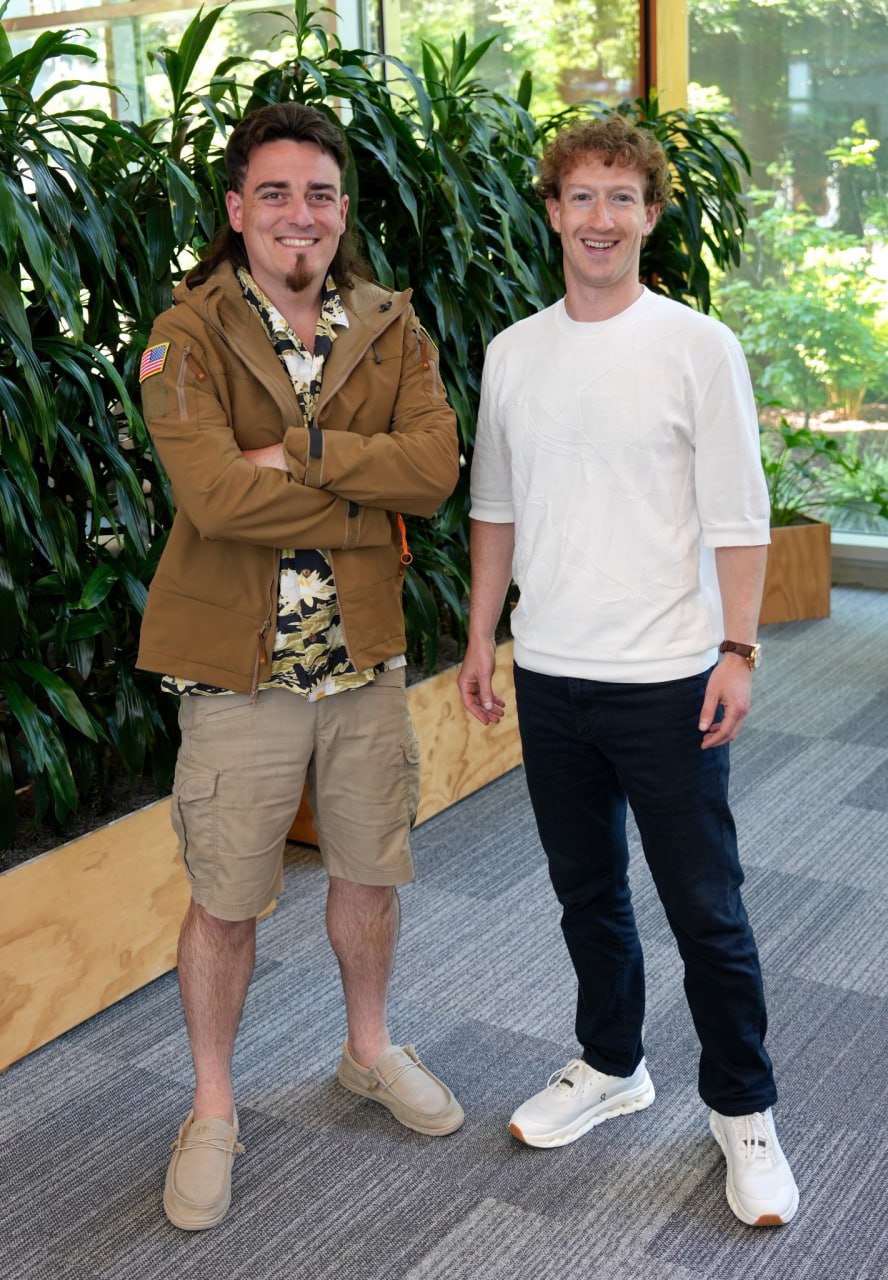
As posts on X reveal, Luckey shared a photo with Zuckerberg, signaling a reconciliation after a tumultuous history — and hinting at a future where immersive technology redefines warfare.
A Rocky Past Meets a Strategic Partnership
 The partnership between Zuckerberg and Luckey is nothing short of phenomenal, given their history. Luckey, who founded Oculus VR and sold it to Facebook (now Meta) for $2 billion in 2014, was ousted in 2017 amid controversy.
The partnership between Zuckerberg and Luckey is nothing short of phenomenal, given their history. Luckey, who founded Oculus VR and sold it to Facebook (now Meta) for $2 billion in 2014, was ousted in 2017 amid controversy.
Reports suggest Zuckerberg pressured Luckey to publicly support a libertarian candidate after Luckey donated $10,000 to a pro-Trump group critical of Hillary Clinton during the 2016 election.
The fallout was messy, with Luckey later claiming in a 2025 podcast interview on Moonshots that his firing wasn’t Zuckerberg’s doing but rather the work of a corporate “apparatus” within Meta.
He emphasized that Zuckerberg, whom he calls “the biggest VR fan in the world,” has invested $60 billion in AR and VR despite public and internal skepticism.
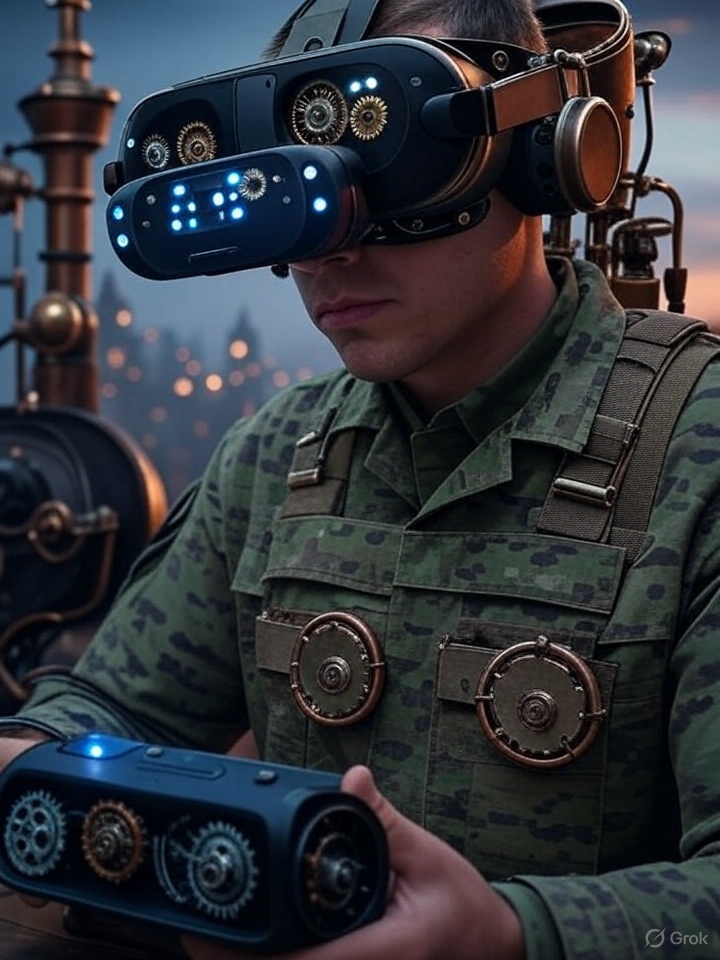 Fast forward to 2025, and the two are back together, this time with a shared mission. Luckey’s defense-tech company, Anduril, has been making waves since its founding in 2017, developing AI-driven drones, solid-fuel rocket engines for cruise missiles, and a command-and-control software called Lattice.
Fast forward to 2025, and the two are back together, this time with a shared mission. Luckey’s defense-tech company, Anduril, has been making waves since its founding in 2017, developing AI-driven drones, solid-fuel rocket engines for cruise missiles, and a command-and-control software called Lattice.
Lattice uses AI to provide real-time battlefield analysis, integrating data from sensors, satellites, and drones to enhance decision-making.
Now, with Meta’s expertise in AR and VR, the duo aims to create what Luckey calls “the world’s best AR and VR systems for the United States Military,” potentially saving “countless lives and dollars.”
Revolutionizing Warfare with AR, VR, and AI
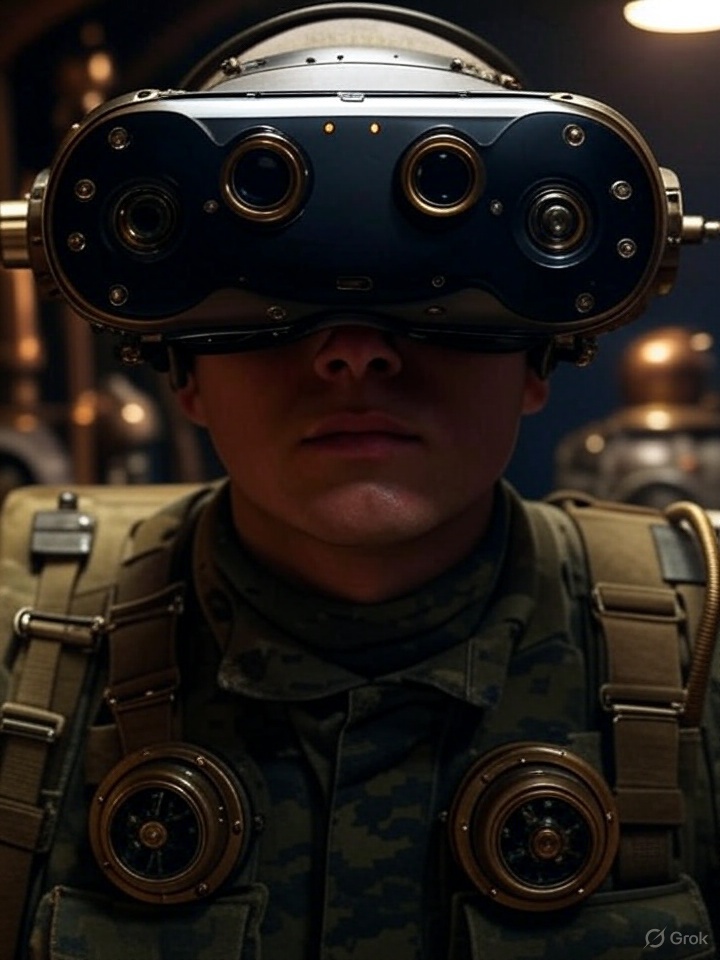 The core of this collaboration lies in combining Anduril’s military tech with Meta’s advancements in extended reality (XR). Anduril’s Lattice software already enables complex battlefield management, allowing operators to control autonomous drones and weapons systems with precision.
The core of this collaboration lies in combining Anduril’s military tech with Meta’s advancements in extended reality (XR). Anduril’s Lattice software already enables complex battlefield management, allowing operators to control autonomous drones and weapons systems with precision.
By integrating AR and VR, soldiers can gain an immersive heads-up display — think real-time tactical data overlaid on their field of vision, enhancing situational awareness and decision-making.
This could revolutionize modern military tactics, enabling operators to manage drones and assets more effectively while staying engaged in the chaos of combat.
Meta’s involvement brings substantial resources to the table. Having poured billions into its Reality Labs division, Meta has developed cutting-edge wearable hardware and optical technology, though its commercial VR ventures have struggled to generate revenue.
This partnership offers a new outlet for those investments, aligning with Anduril’s existing work on the U.S. Army’s Integrated Visual Augmentation System (IVAS) program — a $22 billion project previously led by Microsoft. Anduril took over the contract in February 2025, and now Meta’s involvement could accelerate the development of the “EagleEye” system, a suite of AR/VR helmets and glasses designed to give soldiers a technological edge.
A Deeper Look: Reconciliation and Ambition
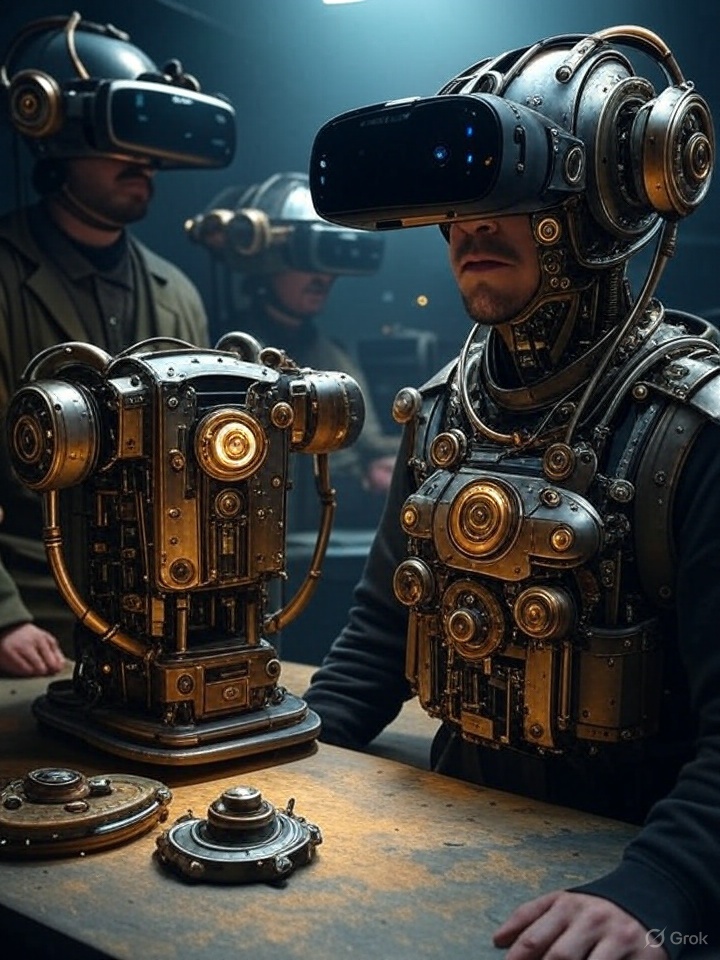 Luckey’s comments on Moonshots shed light on the personal stakes of this reunion. He describes Zuckerberg as a pragmatic leader who faced immense pressure while championing VR, even at the cost of his public image.
Luckey’s comments on Moonshots shed light on the personal stakes of this reunion. He describes Zuckerberg as a pragmatic leader who faced immense pressure while championing VR, even at the cost of his public image.
Luckey also clarified that his ousting was orchestrated by lower-level executives — people he claims are no longer with Meta—rather than Zuckerberg himself.
Legal proceedings over the years, he says, revealed the true culprits behind his exit, allowing him to move past the betrayal and focus on this new chapter.
For Zuckerberg, this partnership signals a broader pivot. Meta’s recent moves — opening its Llama AI models for defense use and aligning with Trump-friendly policies — suggest a strategic shift toward military contracting, a lucrative but controversial space.
The collaboration with Anduril not only mends a personal rift but also positions Meta as a key player in national security tech, a far cry from its social media roots.
Also read:
- Wrap House Simulator: The Ultimate Shaurma Co-Op Chaos for Your Weekend with Friends
- Overcoming Impostor Syndrome with ChatGPT: Your Personal Confidence Coach
- Elon Musk’s Bold Promise: Mars Flights to Begin in 2026
What’s Next: A High-Stakes Future
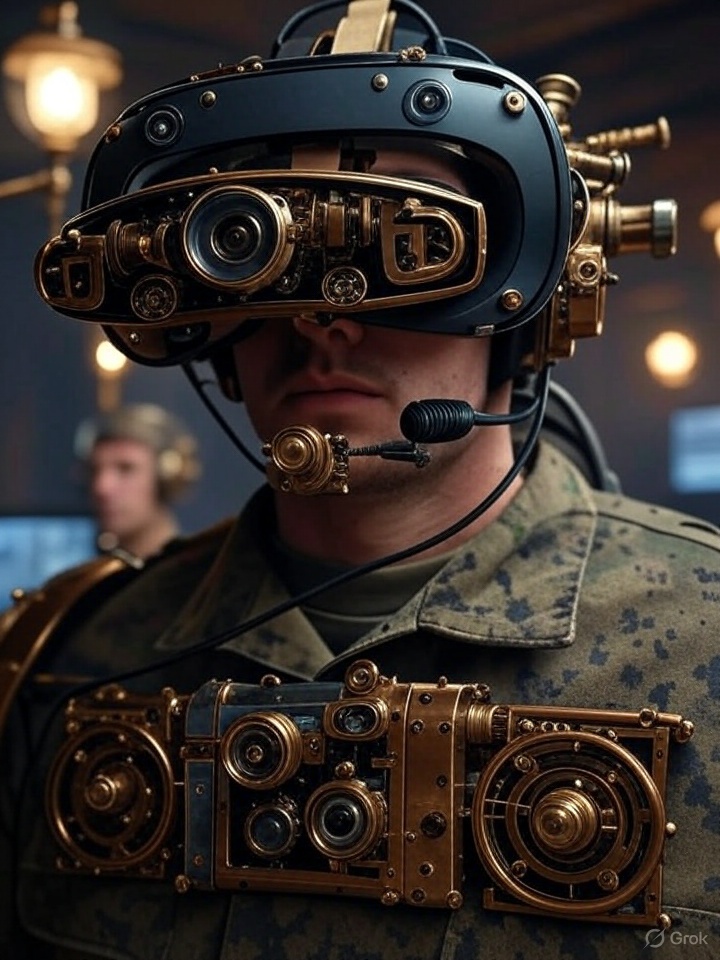 The Meta-Anduril partnership is just the beginning of a larger trend: Big Tech’s growing entanglement with the defense industry.
The Meta-Anduril partnership is just the beginning of a larger trend: Big Tech’s growing entanglement with the defense industry.
While the project promises to enhance U.S. military capabilities, it raises ethical questions about AI-driven warfare and surveillance. Anduril’s autonomous systems, paired with Meta’s XR tech, could redefine how wars are fought — but at what cost?
As the companies await approval for an Army contract, their joint vision is clear: to equip soldiers with tools that blur the line between science fiction and reality.
For Zuckerberg and Luckey, this is more than a business deal — it’s a chance to shape the future of both technology and warfare.
Word count: ~350
This article explores the Zuckerberg-Luckey reunion, their ambitious AR/VR project for the U.S. military, and the implications of blending AI and immersive tech in warfare, while weaving in historical context and personal insights.






